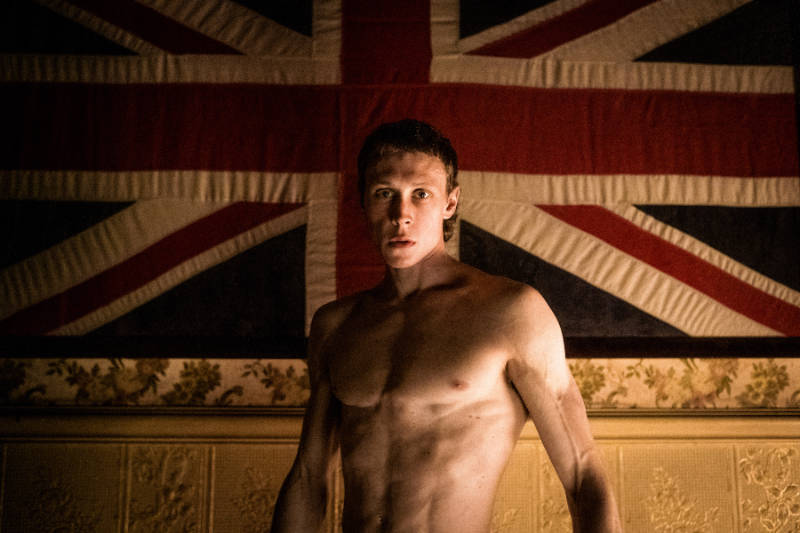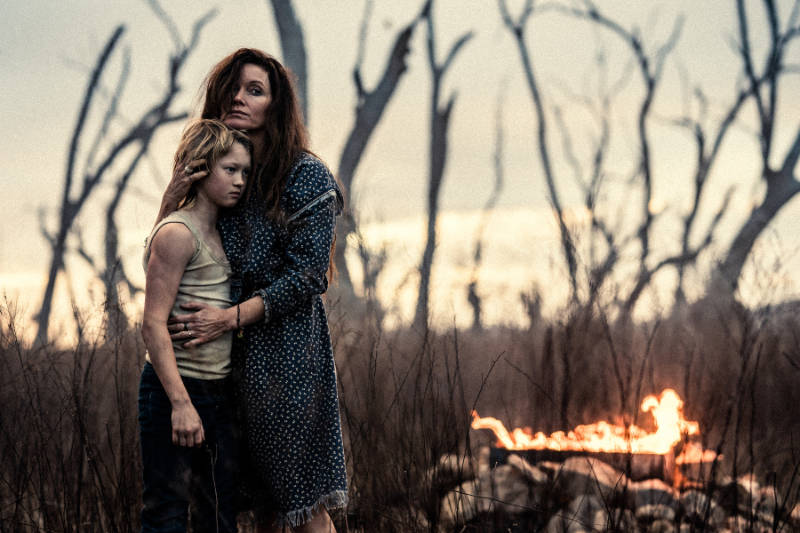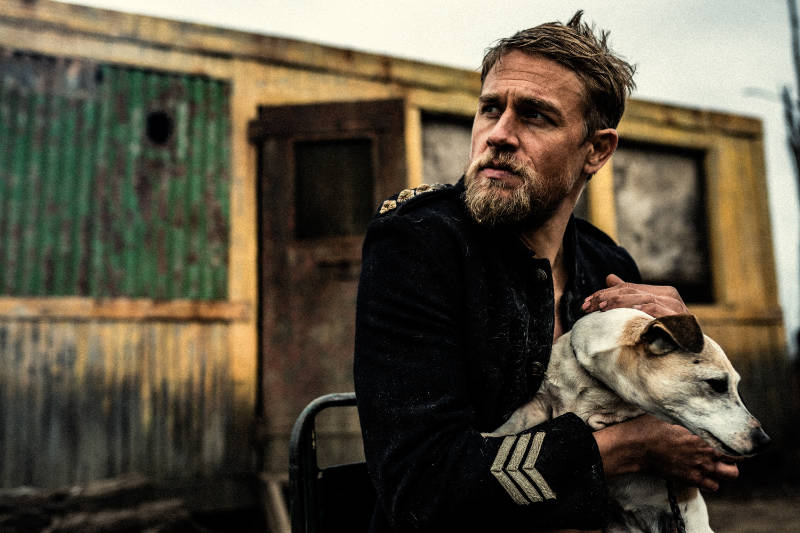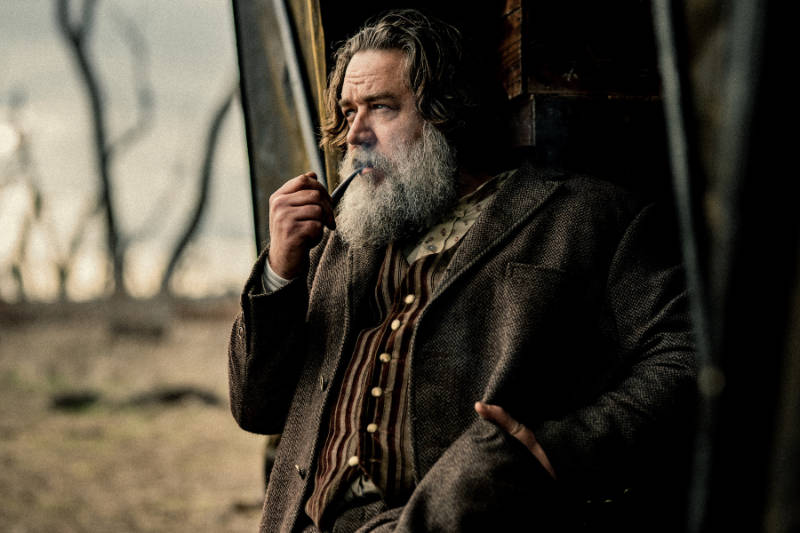True History of the Kelly Gang Review
No film based on a true story is really about its subject, or at least not wholly about it. Sure, there’s a requirement to include the major moments of a life or event and keep the bones of the story in line with history. But the viewpoint of the filmmakers matters as much as the bones of it, and that viewpoint is always about today.
Whatever the original events may have been about, it’s their use as a framework for the problems of today that makes them interesting, overt or not. True History of the Kelly Gang does not shy away from that or attempt to hide what it is doing; the story of Australia’s most famous outlaw is a screed about the plight of the poor and how brazenly the state pushes the lower class around without any comeuppance.

This doesn’t mean Ned Kelly (George MacKay) wasn’t real; he undeniably was, becoming a cult figure in a near Billy the Kid-like vein in late 19th century Australia. A poor son of a poor family whose father was sent to prison as a child for desecrating cattle, Kelly grew up among bandits and robbers and had a sense that it was impossible to make an honest living.
When his mother was also sent to prison for things he had done, Kelly finally snapped, declaring war on the British government and building his own gang to do so (in between some robbery and grand larceny to fund the effort) with an aim to push the rule of the powerful out of the poor’s life. Or maybe he just wanted to do what he wanted, whenever he wanted.

It’s impossible to know what Kelly’s real motives were, only what director Justin Kurzel’s are – to show the impact of corrupt rulers on the lives of those they corrupt and lay the blame for what causes crime where he sees it truly belonging. To do so, Kurzel breaks with other Kelly stories to go back to his beginnings as a boy, waiting until nearly the middle of the film to introduce Kelly the man.
In fact, Kurzel seems generally uninterested in Kelly’s crimes (and certainly of anyone else in the gang) versus the world they occur in. Even his signature moment of facing a government posse covered head to tow in plate steel armor to make him bulletproof is put off as long as possible in order to focus on what would make someone behave this way.

That focus on the world around extends to the visual look of the film. Dusty and bleak and yet full of visual wonder, True History of the Kelly Gang seems caught between Kurzel’s desire to show the sparseness of Australia, the way it might drive a man to irrational acts, and his own uniquely potent visual sense. It’s a strange, conflicted mess which can and does weaken some of the points he wants to make.
How isolated is Harry Doyle’s winter hideaway when its sparse beauty makes it look so inviting? Again, it’s only in the final moments, when Ned dons his famous army, and the world around him is going up in smoke and flame, that the outer craziness reflects the inner turmoil Kelly would have had to have been experiencing. The moment itself is every bit as awesome as the stories about Kelly have suggested, reverting to the controlled insanity Kurzel unleashed on Macbeth with awesome effect.

Occasionally, the rest of the film is up to that, particularly in the first half, where most of the narrative is taken by two men not named Kelly. Russell Crowe shines as the surly bandit king Henry Power, taking control of his scenes until Ned grows up and is able to do the same. Showing the bandit as a boy provides the opportunity to see what shaped him but also leaves him as a spectator in his own story, watching different men battle for his mother’s affections and fill the void as a father figure.
On the one hand, it provides the opportunity for Charlie Hunnam and Crowe to do some of their best work in the last several years. On the other, it reduces the central character to a figurehead without internal life or agency until he’s a grown man. And even once he is, he’s again continually upstaged by Nicholas Hoult and his outlaw compatriots, who are more complex and interesting than he is.

Whether they actually were that much more interesting in real life, we’ll never know. But they must be in the film because the movie isn’t about who Ned Kelly was. It’s about what he represents relative to our modern concerns, specifically how rising income inequality and complicity by the government reduce the humanity of the poor until they have no choice but to attack the system they are not allowed to be a part of.
A complex living human can’t embody all of that, so Ned is reduced to a symbol that takes abuse until he explodes, leaving Kurzel to beef up the men around him in order to keep scenes from getting stagnant as he waits and waits and waits for Ned to be ready to something.

As a character piece, it’s lacking, but that’s because it’s not really about Ned or even the people around him. As a dialectic about systemized inequality, it’s in full flower and filled with both awesome imagery and some truly fantastic performances from actors who don’t always get the opportunity to show what they can really do.
Maybe one day someone will actually make a film about the real Ned Kelly and not what he can represent for today – but until then, this iteration will do.
True History of the Kelly Gang Review Score: 7.5/10
IFC Films’ True History of the Kelly Gang will be available on Digital Friday, April 24th. The movie is rated R for strong violence throughout, bloody images, pervasive language, sexual content, and some nudity.
